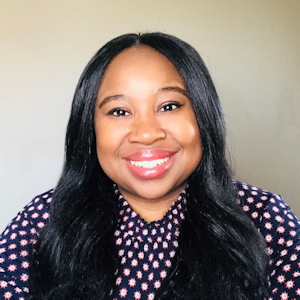“By staying innovative and leading change from the front, we’re supporting the armed forces, helping them maintain an advantage and therefore keeping the country safe.”

Programme Manager, Buhe
Can you tell me about your role, team and what your job entails?
I’ve worked in the Future Capability Group (FCG) for just over three years, and I’m the project lead for the Defence Growth Partnership programme. My role involves engaging with industry partners and the wider Defence industry to provide the best solutions for the UK military to meet complex challenges in modern warfare. It’s a technical role and involves a lot of collaboration, innovation, and agility across the projects we deliver. I’m responsible for delivering innovations that span across Defence priorities such as autonomy, persistent surveillance, and immersive training. I also lead on other experimentation projects in the Maritime portfolio in the FCG Capability Exploitation Team. FCG is a diverse and exciting team, including engineering graduates, people with Fellowships, project professionals, and specialists in autonomy, artificial intelligence, and robotics.
Can you tell us more about the Defence Growth Partnership?
The Defence Growth Partnership (DGP) is a cross-sector initiative that jointly invests with industry supporting businesses in testing pioneering technology and maturing it to attract further investment and exploit opportunities. DGP has been running for over five years with phases that look at proof of concept through to proving capability in a realistic operational environment. Our work is in the pre-concept space working – it’s the research that comes first with the involvement of a wide range of stakeholders and academia. The programme gathers evidence to de-risk future capability and keep up pace with novel solutions, to enable our armed forces to continue to maintain an advantage in the battlespace. Our adversaries are becoming smarter in developing their technologies, so by supporting, engaging and collaborating with industry partners, as well as pursuing other markets and export opportunities, it allows us to respond quickly and influence future capabilities for the military.
What do you enjoy most about your role within FCG?
An exciting element of my role is that I see the full life cycle of projects and discover emerging technologies that aren’t on the market yet. I’ve delivered four projects and I’ve been able to observe military customers adopt and shape their future strategies. It’s exciting doing something different and working at pace with experienced people who I can learn from. As a result of some of our projects, we’ve also been able to make a difference to smaller businesses. Through project meetings and engagement to upskill them about our requirements, processes, timings and flexibility, it has enabled them to compete alongside larger companies. It’s great to support these businesses and feel like you’re making a difference, and it can also be more beneficial from a commercial perspective. Smaller companies tend to be specialists in very specific areas and have more in-depth knowledge of what’s newly trending. By working with smaller businesses you’re giving them an opportunity to show what they can do and therefore they’re more determined to deliver the requirement.
Challenging the norm is championed within your area, by finding new ways of doing things and delivering it quickly. Can you give us a summary of why that is and some examples of specific projects?
FCG is always seeking opportunities to do things in an agile way, thereby allowing us to deliver quickly. Most of our projects enable innovation through small-scale procurement of systems under a framework agreement so end-users can trial and experiment. The evidence gathered from these trials is utilised for requirements generation, readiness and potential transition of a capability into service.
One project that comes to mind is Heavy Lift Challenge which has accelerated the development of emerging technology through adopting an agile procurement approach to identify Remotely Piloted Air Systems (RPAS) that could be used to transport critical cargo and supplies from ship to shore for the Royal Navy. Prospective suppliers were invited to demonstrate their RPAS systems against a set criterion for speed, endurance and accuracy carrying weight in excess of 100kg. The successful companies secured funding to develop their RPAS to lift beyond 200kg, stretching targets even further. Adopting an agile approach, where we split the task into short phases of work with frequent reassessment and adaptation, allows us to develop concepts more quickly, identifying challenges we might be faced with sooner rather than later.
How are you supported to stay inventive and create positive change?
In our team we have a lot of freedom to come up with ideas, and we’re encouraged to think differently. We’re supported to research new and emerging technologies, to engage with industry, and understand their system solutions. The freedom that we get to take different approaches has been empowering, and really uplifting. Regardless of level, everyone is treated as equal and there is a level playing field to contribute ideas. You get to work with people that have been in the team for a long time and learn from their experiences. We’re supported to think differently and take different approaches.
For you, what’s the positive impact of this innovative mindset?
For me, it’s a feeling of empowerment, coupled with adopting good relationships, not only with the team, but also with industry and the customer. You get to influence and contribute to strategic decisions and it’s great to see how you’re shaping a project through doing something different. From an end-user perspective, you’re able to provide the research and cutting-edge ideas that will positively impact the military customer and encourage them to think about their future strategy and needs in relation to defence equipment. It also gives industry partners an early insight to the end-user priorities from the beginning.
Why is it important for DE&S to lead change?
With new technologies being launched all the time and rapidly being modified or upgraded, it’s important for DE&S to lead change to understand those new technologies and to keep pace with what’s going on in the modern world. I think DE&S has always embraced change as an organisation, which is vital in building a culture of innovation. Ultimately, by staying innovative and leading change from the front, we’re supporting the armed forces, helping them maintain an advantage and therefore keeping the country safe.
How does leading change make you feel?
It’s really rewarding. I’m doing something different where I get to challenge and stretch myself and be creative on a variety of projects. Each day is different, you never get the same thing twice and I enjoy solving problems. You can see that the world is changing, and that things are progressing at a fast rate and it’s seeking those opportunities and grasping them at the earliest opportunity.
What is it that excites you and gets you out of bed in the morning?
My work’s exciting and I get experiment with cool technology which is great fun. I’ve also got variety in my job and I work with a fantastic team who are highly motivated. There’s nothing greater than having a team that is supportive and an innovative leader who has a vision to do things differently.
Latest Project Delivery vacancies
Can’t find a Project Delivery job for you today? Search all our vacancies.


